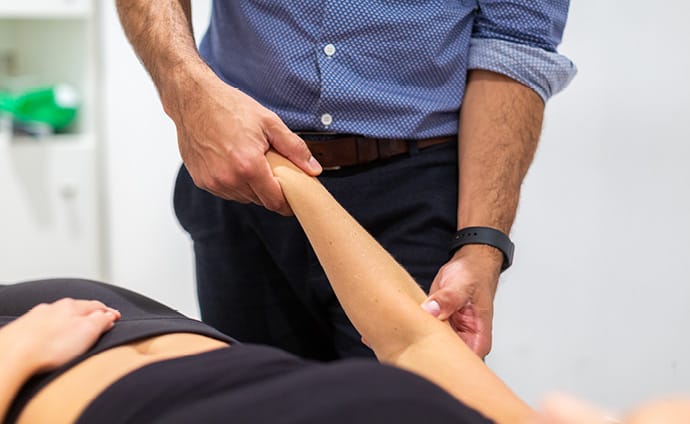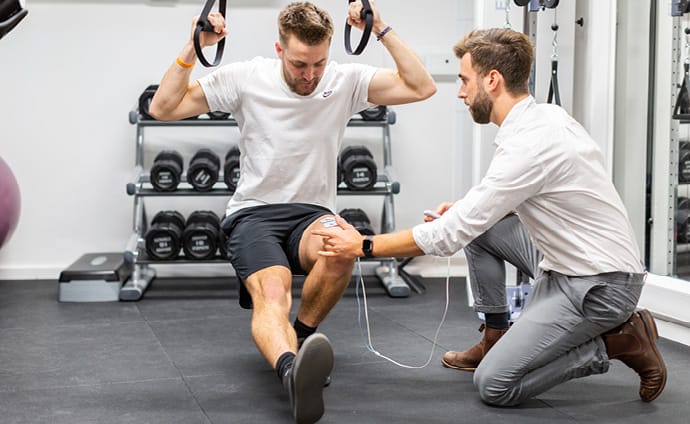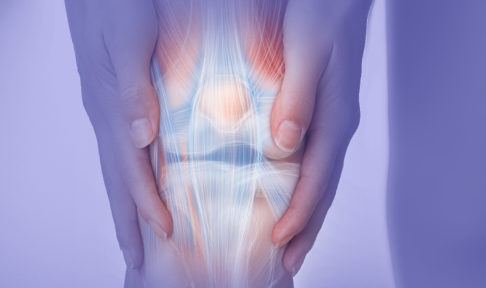Arthritis is one of the most common issues physiotherapists see in patients – after all, there are approximately 10 million people with some form of arthritis in the UK alone. But one thing many people may not realise is that arthritis isn’t just a condition that affects older people – anyone of any age can suffer from it.
We’ll often hear clients come in who have been diagnosed with arthritis who are under the impression they ‘just have to live with the pain’. But that isn’t the case!
Unfortunately, as physios, we’ll often hear clients come in who have been diagnosed with arthritis who are under the impression they ‘just have to live with the pain’. But that isn’t the case! At Spectrum, we can help you understand what is happening to your joints and muscles when you are suffering from arthritis, which then allows us to create a personalised treatment plan to help you manage the effects.
What is arthritis?
The word arthritis actually comes from the Greek words ‘arthro’ (meaning joint) and ‘itis’ meaning inflammation, which basically sums up exactly what it is. The inflammation that is found in the joints of someone with arthritis can cause them pain and stiffness – whether it’s in their fingers or their knee.
A healthy joint has a layer of cartilage between the two connecting bones, which acts almost like a shock absorber. Each joint is also lined with a membrane that produces a small amount of joint fluid that works to lubricate it and avoid grinding or damage. Then you have a joint capsule and ligaments which work to hold the whole thing together – anchoring the bones and surrounding muscles so you can move your joint in the way it’s supposed to.
If a joint has arthritis, it will mean one of the above parts is being compromised by inflammation – but which part and the issue will be dependent on the type of arthritis you’re suffering from.

Types of arthritis
The most common type of arthritis is known as osteoarthritis. Unfortunately, this is often wrongly misdiagnosed as just ‘wear and tear’ or ‘degenerative’ arthritis, which leads patients to believe that treatment is pointless.
Joints with osteoarthritis are super sensitive, meaning any sort of minor injury can cause the body to trigger a healing process. Over time, this causes a build-up of joint fluid being produced which solidifies into a hard build-up, almost like an additional bone. The excess joint fluid can also cause the cartilage to thin, so there’s less shock absorption when your joint is performing simple functions.
Another common type of arthritis is rheumatoid arthritis. This is a little different to osteoarthritis because it’s caused by your immune system attacking the joint capsule, then the membrane becomes inflamed, which will eventually lead to the cartilage and bone being destroyed. While it’s not entirely known why this happens, there are a few common causes of arthritis.
Causes of arthritis
While it isn’t always clear why you have arthritis in certain joints, here are some of the most common causes
- Family history: Unfortunately, sometimes it is purely genetics that makes you more likely to suffer from arthritis, especially rheumatoid arthritis and osteoarthritis in your fingers.
- Gender: Certain types of arthritis are more common in either women or men.
- Age: Even though we said arthritis isn’t strictly an older persons’ condition, osteoarthritis does more commonly occur later in life. But, other types like rheumatoid arthritis are actually more common in younger adults.
- Injury: If you have previously broken a bone or damaged a joint playing sport or in an accident, this can lead to osteoarthritis down the track.
- Illness: Certain viruses or other infections can be the catalyst for some types of arthritis.
- Environment: While there isn’t enough research to confirm this, it is thought that exposure to certain elements like asbestos can increase your risk of rheumatoid arthritis.
- Lifestyle: Smoking or obesity can increase your risk of arthritis, especially if you already have a genetic predisposition to developing it.
How physiotherapy can treat arthritis
At Spectrum, we don’t believe in living a life of pain. Whether it’s through lifestyle adjustments, a personalised muscle strengthening program (to help take the pressure off your joints) or other treatments, physiotherapy can help to relieve discomfort caused by arthritis.
A physio can manually stretch out all the muscles in your leg, which will in turn loosen up your ankle and prevent it from causing discomfort or further damage to the source of the arthritis.
Manual manipulation therapy and mobilisation are key treatments used for arthritis. For example, if you have arthritis in your knee, you may find that it’s causing stiffness all the way down your leg into your ankle, which then creates a vicious cycle of stiffness. A physio can manually stretch out all the muscles in your leg, which will in turn loosen up your ankle and prevent it from causing discomfort or further damage to the source of the arthritis. We can also mobilise the joints themselves to decrease the stiffness further. And, if you know you have a family history of arthritis, physios can also provide preventative treatment to build more healthy bone tissue.
If you have mild arthritis you need to exercise and keep moving to strengthen your muscles and build healthy bone tissues. This is where our team of dedicated specialists can really shine, working seamlessly together to take a 360 approach to your symptoms and help you manage your condition. Resistance exercise is important because muscles pulling on your bones stimulates healthy new bone formation, thereby decreasing the rate at which degeneration occurs.
TENS is another one of the most common treatments for arthritis as it speaks to the muscles around the affected joint and helps to relieve pain and increase mobility. TENS works by sending electrical pulses from a transcutaneous electrical nerve stimulator to a pad attached to your skin. These electrical pulses can help to stimulate your body and release endorphins and other substances, which block pain signals in the brain.
Are you suffering from arthritis or undiagnosed joint pain? Book in a time with the expert team at Spectrum and they will have you on your way to living a pain-free life.




